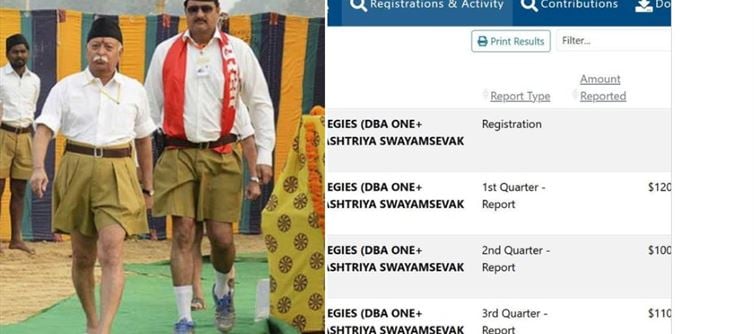
Where did the RSS get so much money from?
A payment of US $330,000 in cryptocurrency is significant, especially for an organisation that, as noted by critics, is not officially registered in India.
There’s no public disclosure of the RSS’s funding sources for such overseas expenditure. That lack of transparency raises red flags around legitimacy, donor origin, and accounting.
In short: Who gave this money? Under what circumstances? What was the source chain for crypto funds?
In what capacity did the RSS contract the firm?
The link is made to Squire Patton Boggs, having registered as a lobbyist for RSS in the U.S. context.
But how was this contract framed: Was RSS acting as a private entity, a non‐profit, a trade body, or something else? Was the deal formally documented?
Was the firm contracted specifically to mediate India-US trade talks, or did the scope extend to broader lobbying? The ambiguity matters.
RSS isn’t registered in India. Why isn’t their source of funds being investigated?
According to the criticism reported, RSS acknowledged it “isn’t a registered organisation and that it does not pay taxes.”
If an entity is carrying out overseas payments and engaging foreign lobbyists, typical regulatory frameworks (taxation, foreign contribution laws, corporate/association registration) would demand scrutiny.
Why has there been no visible public investigation or clarification of how much was paid, what the justification was, and how this aligns with India’s laws (e.g., FCRA, company law)?
Did the Modi government permit them to pay brokerage?
If RSS is acting in a public, policy-influencing capacity (especially on trade) and engaging in payments to foreign firms, did the government have oversight or consent?
Was this done with state knowledge or tacit approval? If so, why is there no public disclosure? If not, what accounts for the government’s silence?
The government’s role here is central: either it authorised or turned a blind eye — neither scenario is politically comfortable.
What is the RSS’s motive for an India-US trade deal?
The trade deal could reshape India’s economy, strategic alignment, export/import dynamics, and diplomacy — and an organisation taking active steps in influencing it likely has defined interests.
Potential motives: seeking leverage for industrial/political allies; shaping regulatory/regime outcomes favourable to RSS-linked entities; securing influence in the U.S. diplomatic/public policy arena.
The fact that their “economic wing” has previously called for india to dump multilateral institutions like the World Trade Organization and push bilateral deals suggests a strategic ideological agenda.
If the RSS is effectively brokering a deal, one must ask: for whom? What’s the payoff?
This is not mere “political spin” — the combination of crypto payment, foreign lobbying, unregistered organisation, and a major international trade deal is a cocktail that demands transparency, accountability, and investigation.




 click and follow Indiaherald WhatsApp channel
click and follow Indiaherald WhatsApp channel